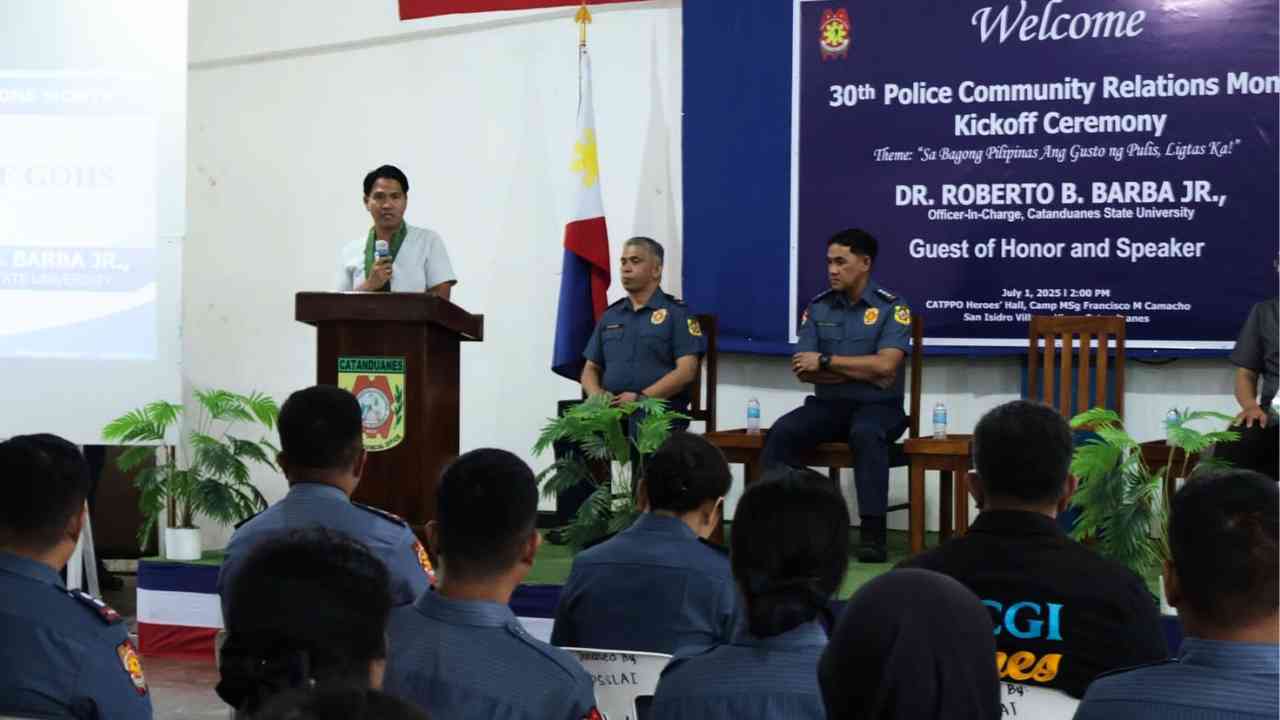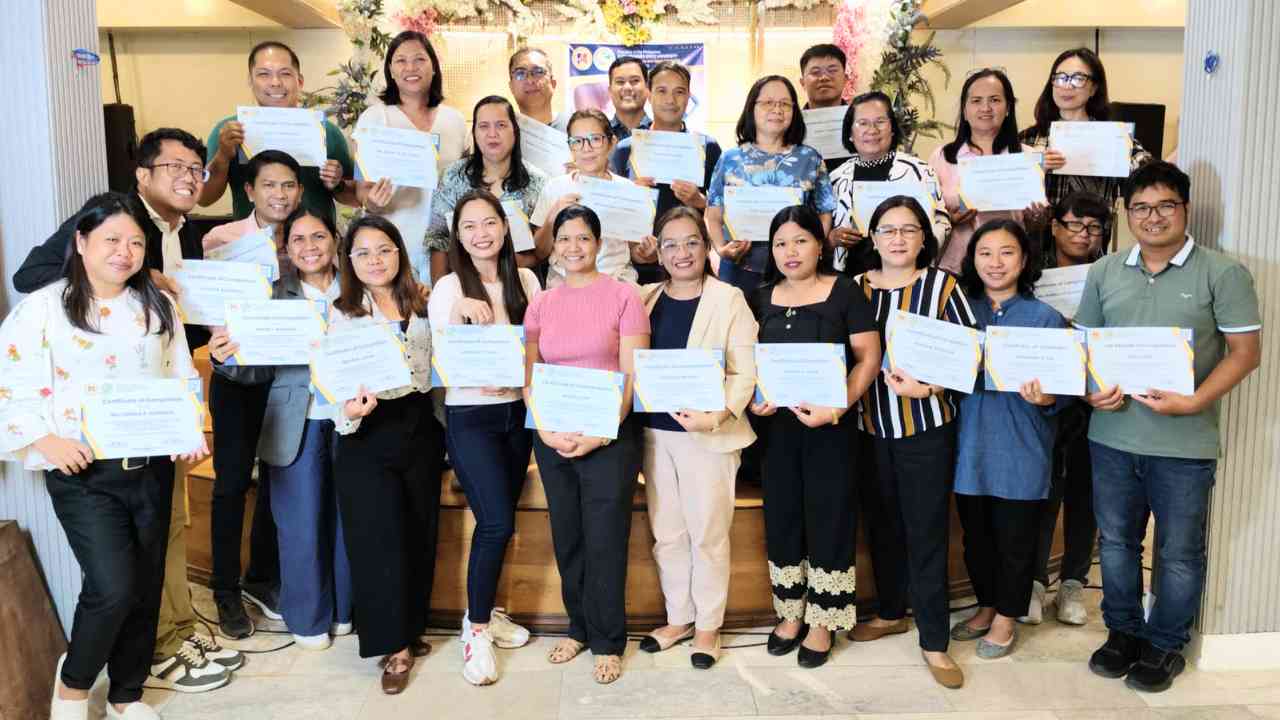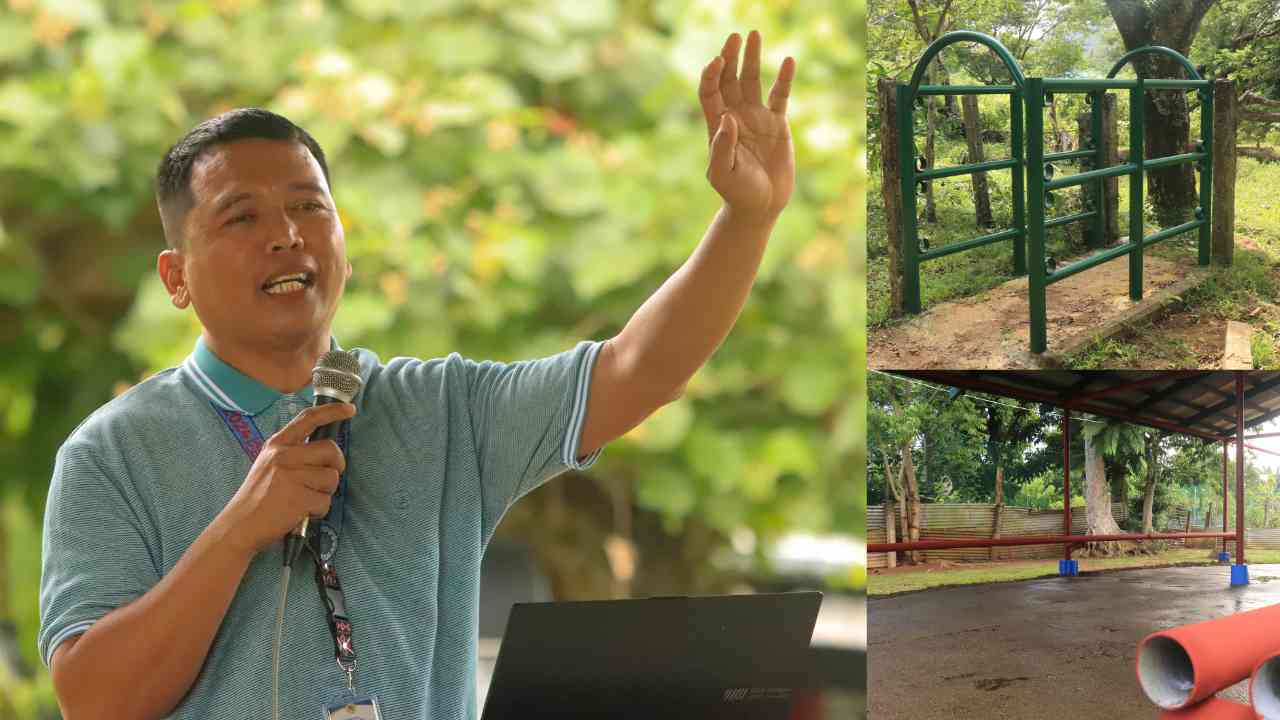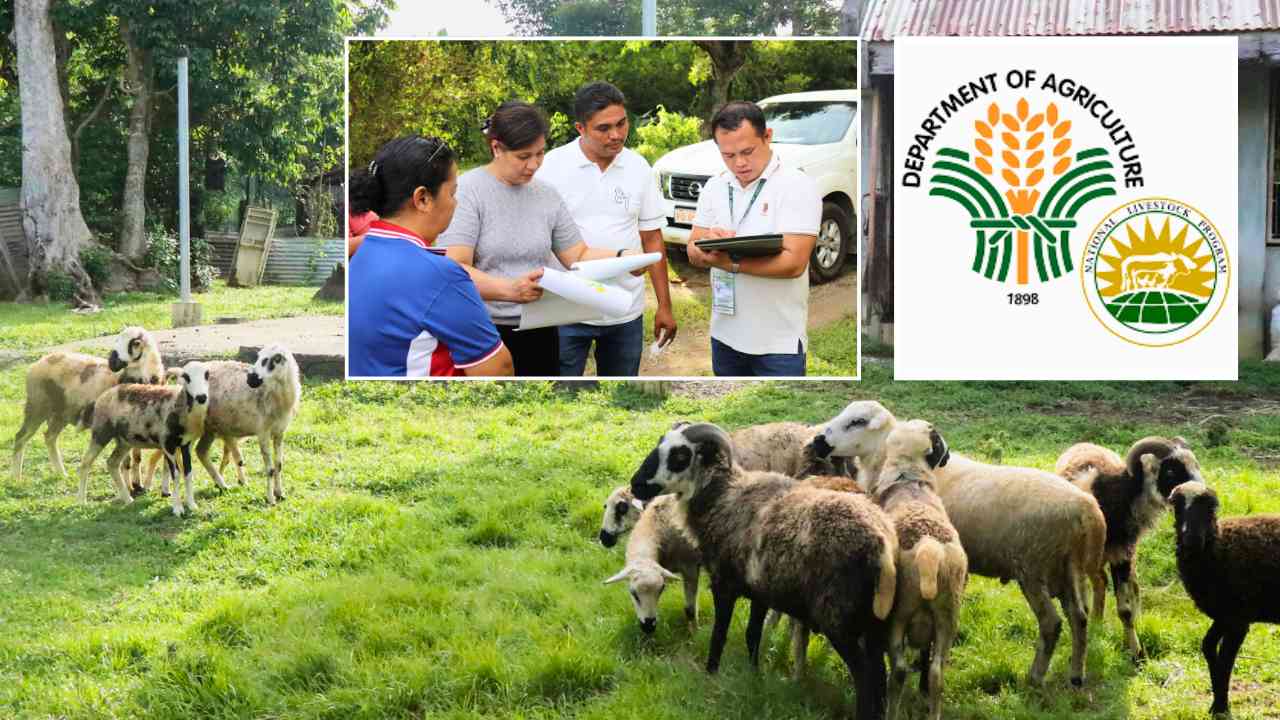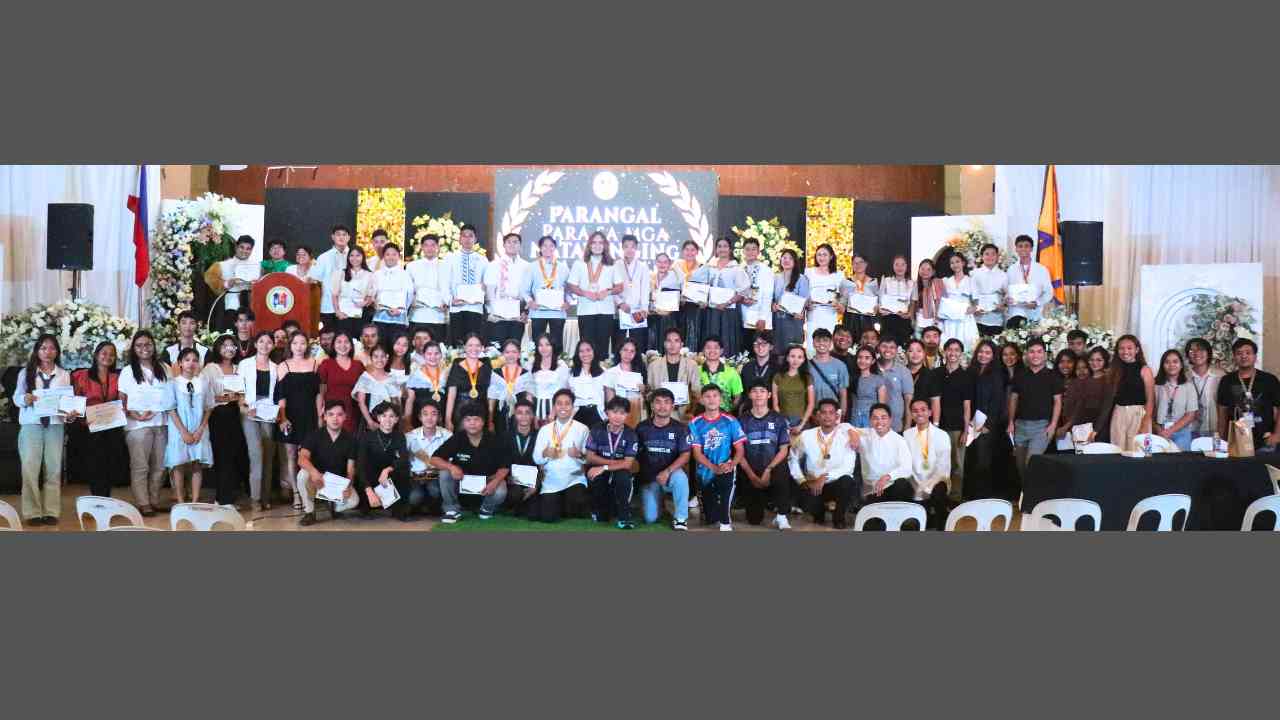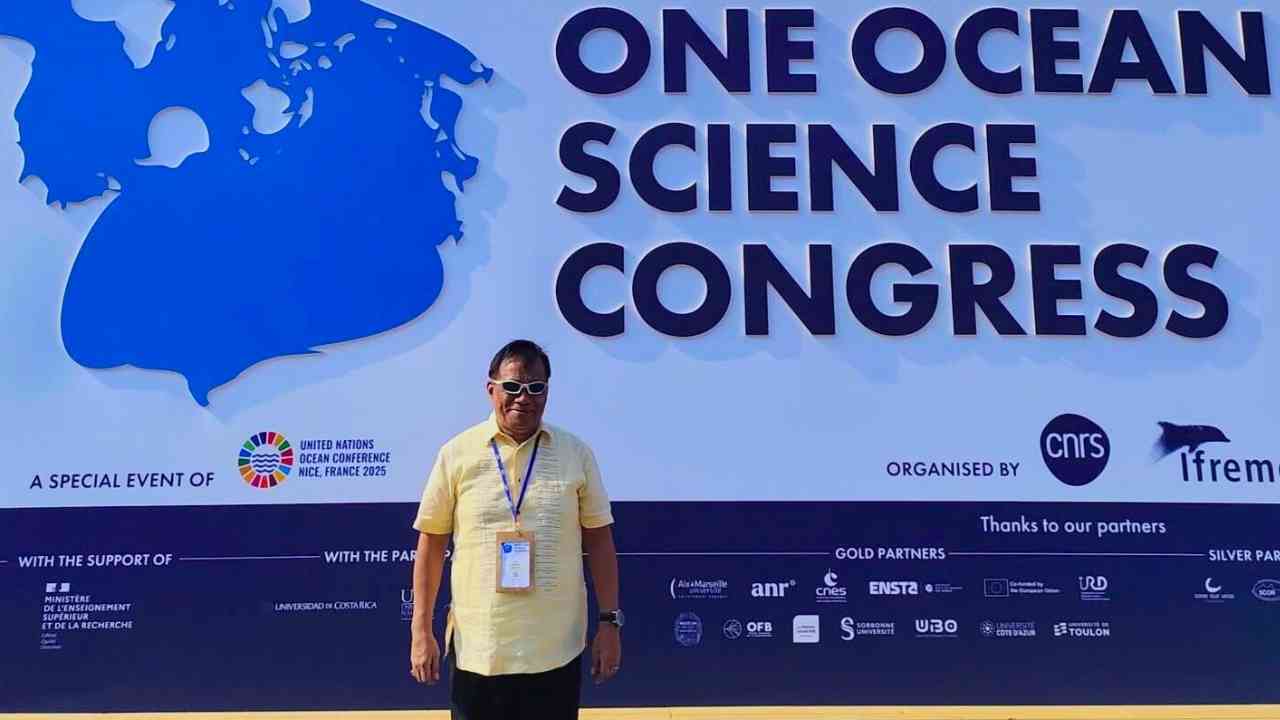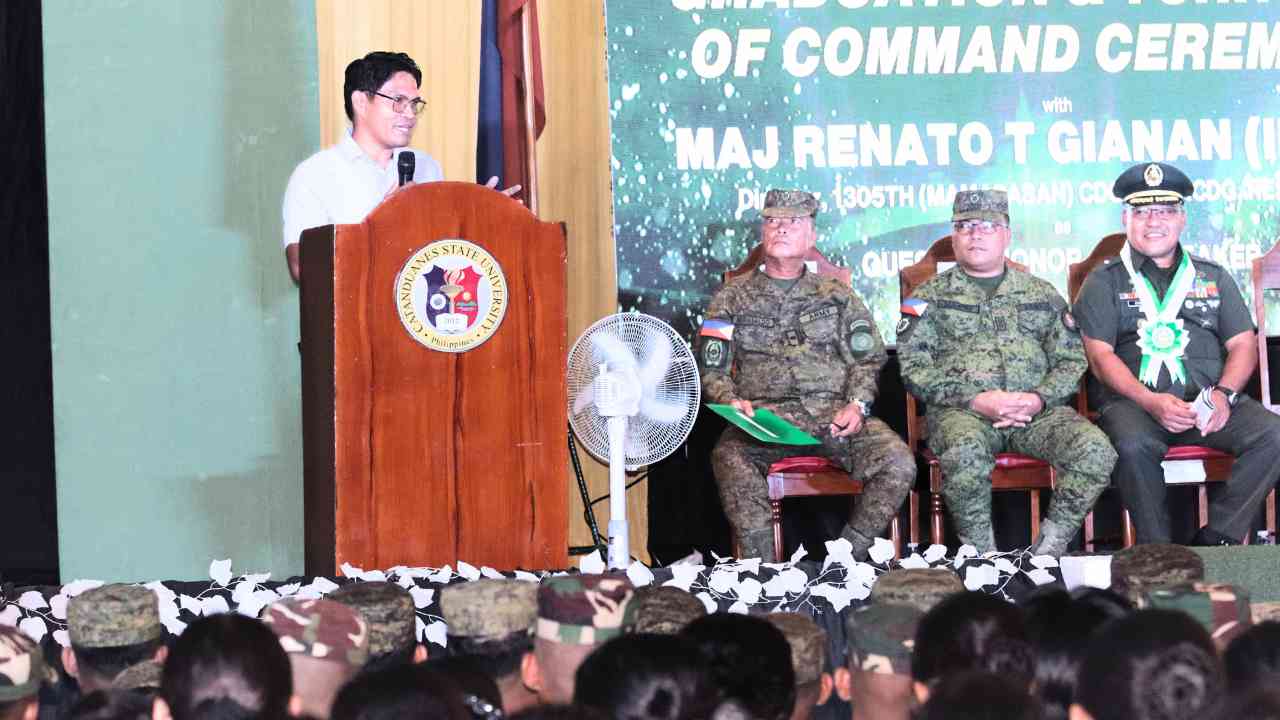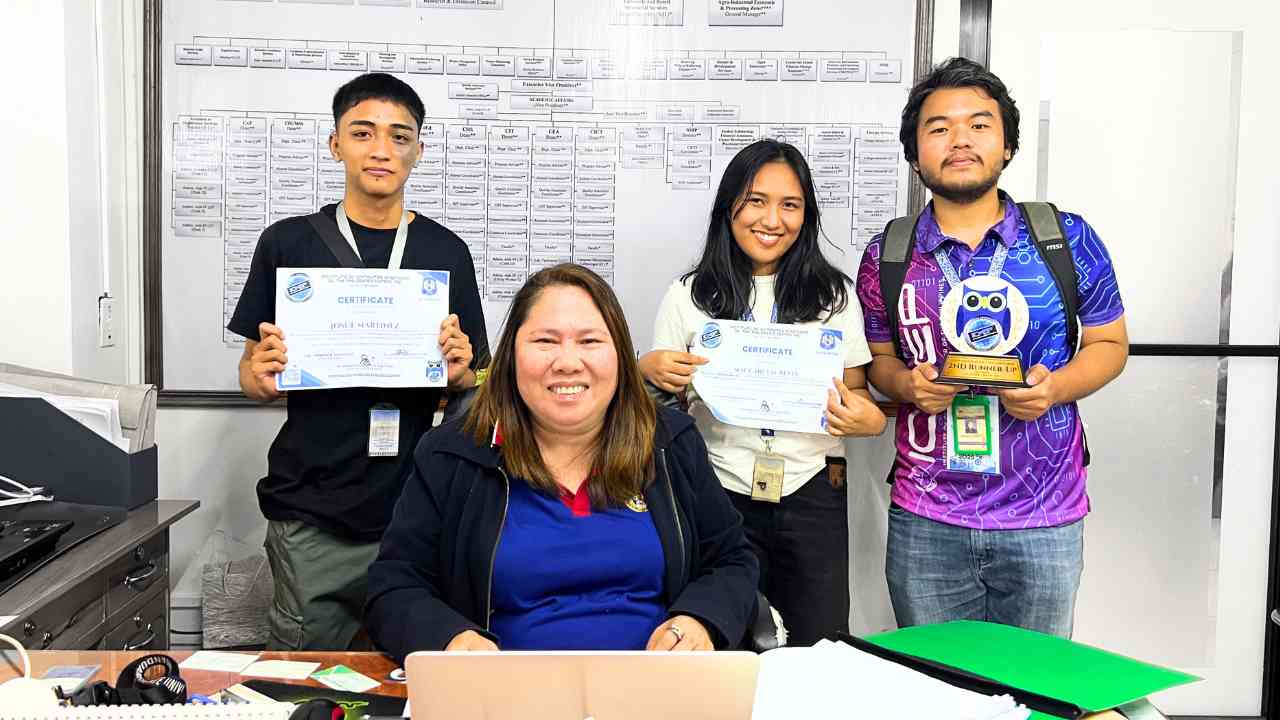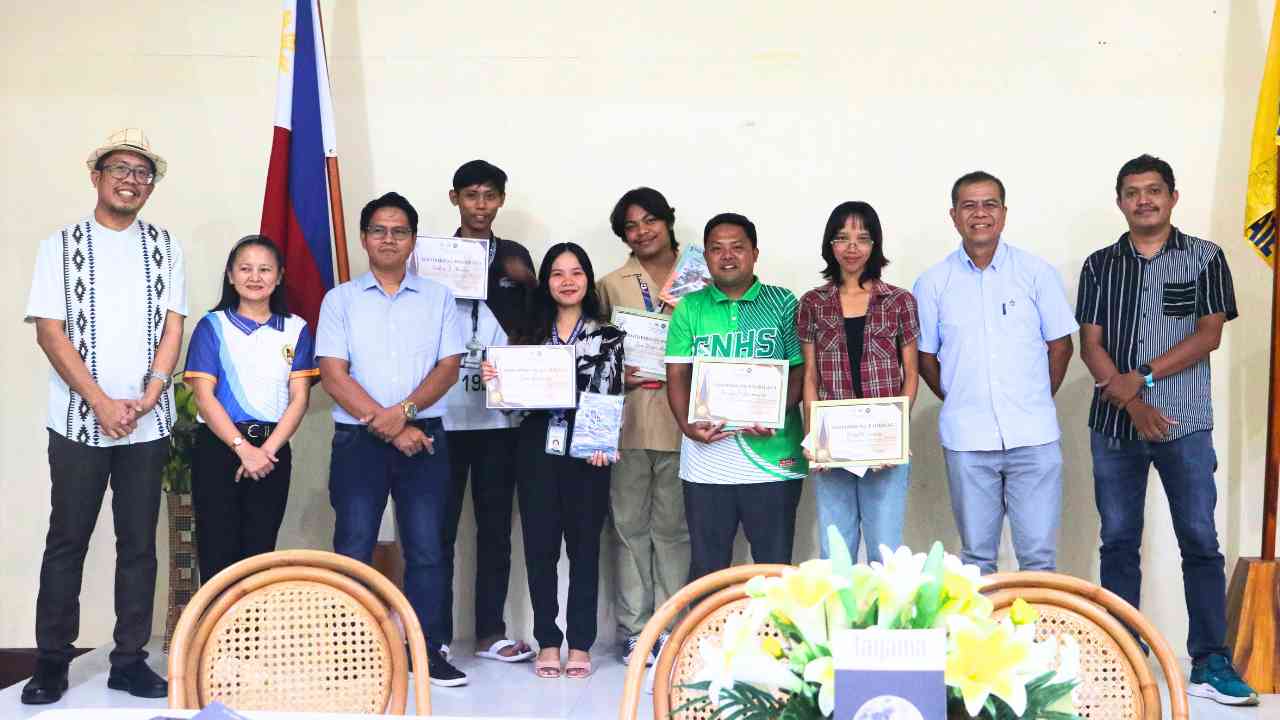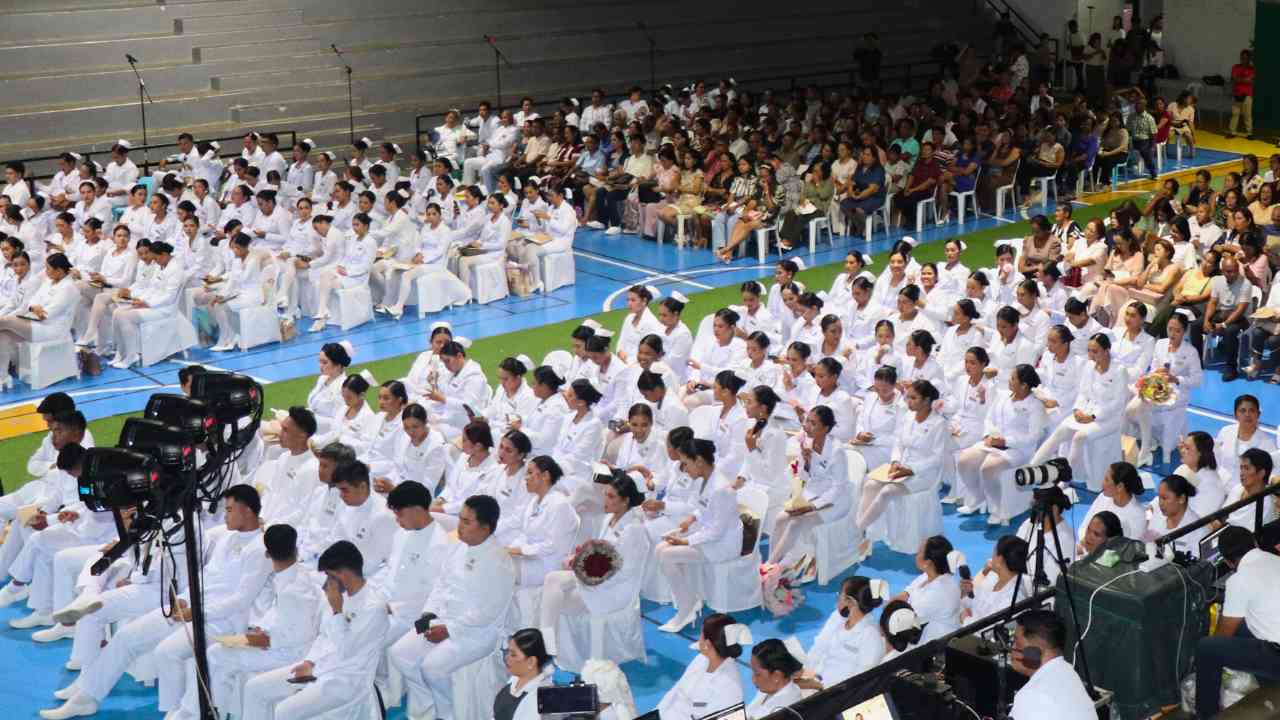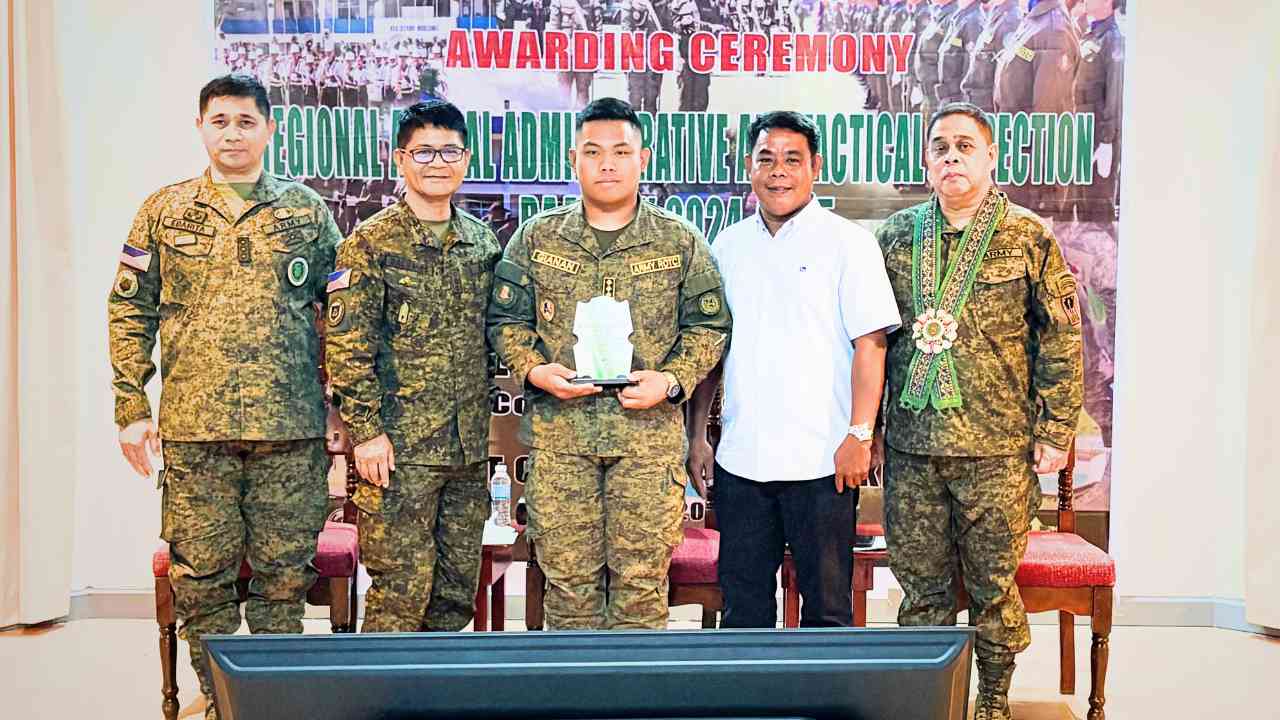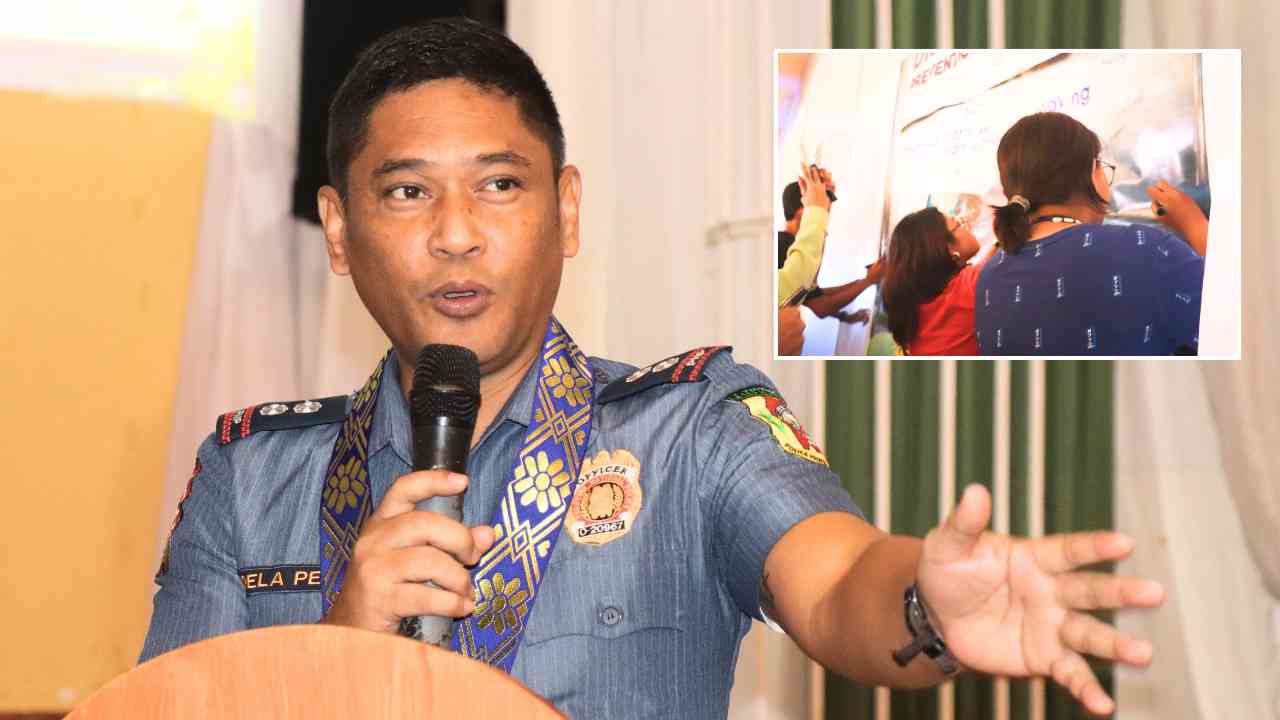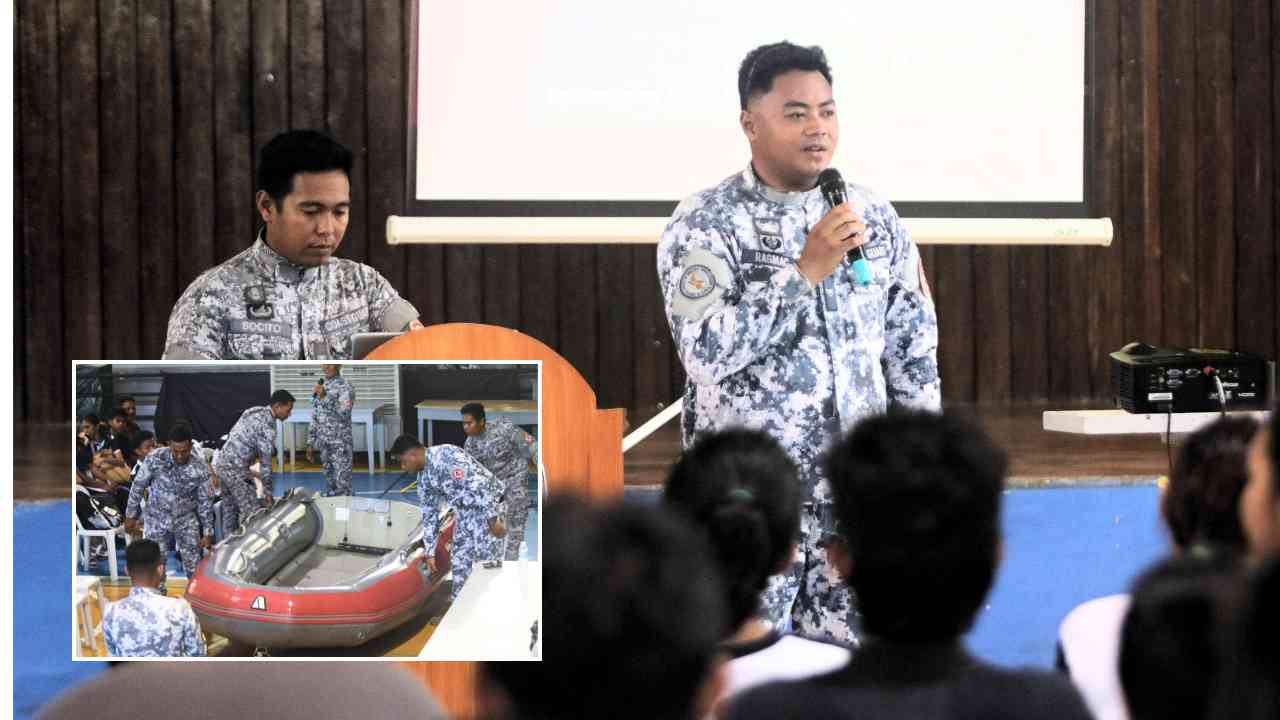‘Trust is the real agenda’: University OIC President calls for deeper police-community cooperation in PCR Month kickoff
Administration“Let’s talk about trust.” That was the pointed opening of Catanduanes State University OIC President Dr. Roberto B. Barba Jr., who served as Guest of Honor and Speaker during the 30th Police Community Relations (PCR) Month Kickoff Ceremony held July 1 at Camp Francisco Camacho in Virac. Speaking before members of the Catanduanes Police Provincial Office, community leaders, and guests, Dr. Barba wasted no time cutting to the core of this year’s theme—“Sa Bagong Pilipinas, Ang Gusto ng Pulis, Ligtas Ka!”—by framing safety not just as a police duty, but as a shared civic pact. “It’s not just about patrol cars or arrest reports,” he said. “It’s about what happens when law enforcement and the public meet—not in confrontation, but in cooperation.” Context is the Catalyst Barba underscored the uniqueness of island life in Catanduanes, where communities are tightly knit, and both good deeds and missteps are amplified. “In a place like this,” he said, “safety means more than low crime numbers. It’s seeing your kid ride a bike down the barangay road without you panicking. It’s the cop who fixes the sound system during the barangay fiesta.” Citing Data, Pushing Dialogue Backed by recent statistics, Barba noted that crime in Catanduanes declined slightly in 2024—from 381 to 372 reported cases. Rape dropped by 32%, and robbery by 52%. While theft and motorcycle carnapping saw a minor uptick, the quick response of local police and barangay units kept them in check. “These aren’t just numbers,” he emphasized. “They’re stories of families not broken, lives not lost—and communities choosing vigilance over violence.” But Barba said the real challenge lies in restoring public trust, which, unlike crime stats, can’t be easily measured. “You might not remember the crime rate, but you’ll remember how the police treated your cousin. Or whether they walked a student home after dark.” From Enforcement to Engagement He reminded the audience that building a “Bagong Pilipinas” isn’t just about reforming institutions—it’s about reimagining relationships. “Policing is a thankless job. When it’s done right, no one notices. When there’s one mistake, no one forgets,” he said. “That’s why community relations matter. Because safety isn’t just enforced—it’s co-created.” Barba called on all sectors to play a role—from educators teaching civic responsibility, to parents modeling respect for the law, to vendors and drivers who often notice things first. “You are the first line of intelligence,” he told the crowd. Calling Out Reality, Not Just Rhetoric Acknowledging ongoing concerns about abuse, rogue elements, and public hesitation, Barba called for “real-time accountability, not just real-time policing.” “Let’s not solve these issues by standing on opposite ends, shouting,” he said. “Let’s sit down—over coffee, during feeding programs, town halls—and ask: ‘Ano bang tunay na nangyayari? Paano tayo tutulong?’” Higher Education’s Role As head of the island’s lone state university, Barba took pride in CatSU’s graduates—many of whom now serve in the PNP and justice sector—even though the university doesn’t offer Criminology. “We produce graduates who don’t just know the law—but who live it, with compassion, intelligence, and integrity.” He also pledged continued university support for initiatives that bridge campuses with community peace-building efforts. A Closing Challenge Ending his message with a challenge to both police and public, Barba asked: “Can we build peace not just through presence, but through partnership?” And with that, he redefined the day’s celebration—not just as a ceremonial kickoff, but as a shared commitment to safety, trust, and the work of building a country where both the public and the police want the same thing: a safe, dignified life for every Filipino.
